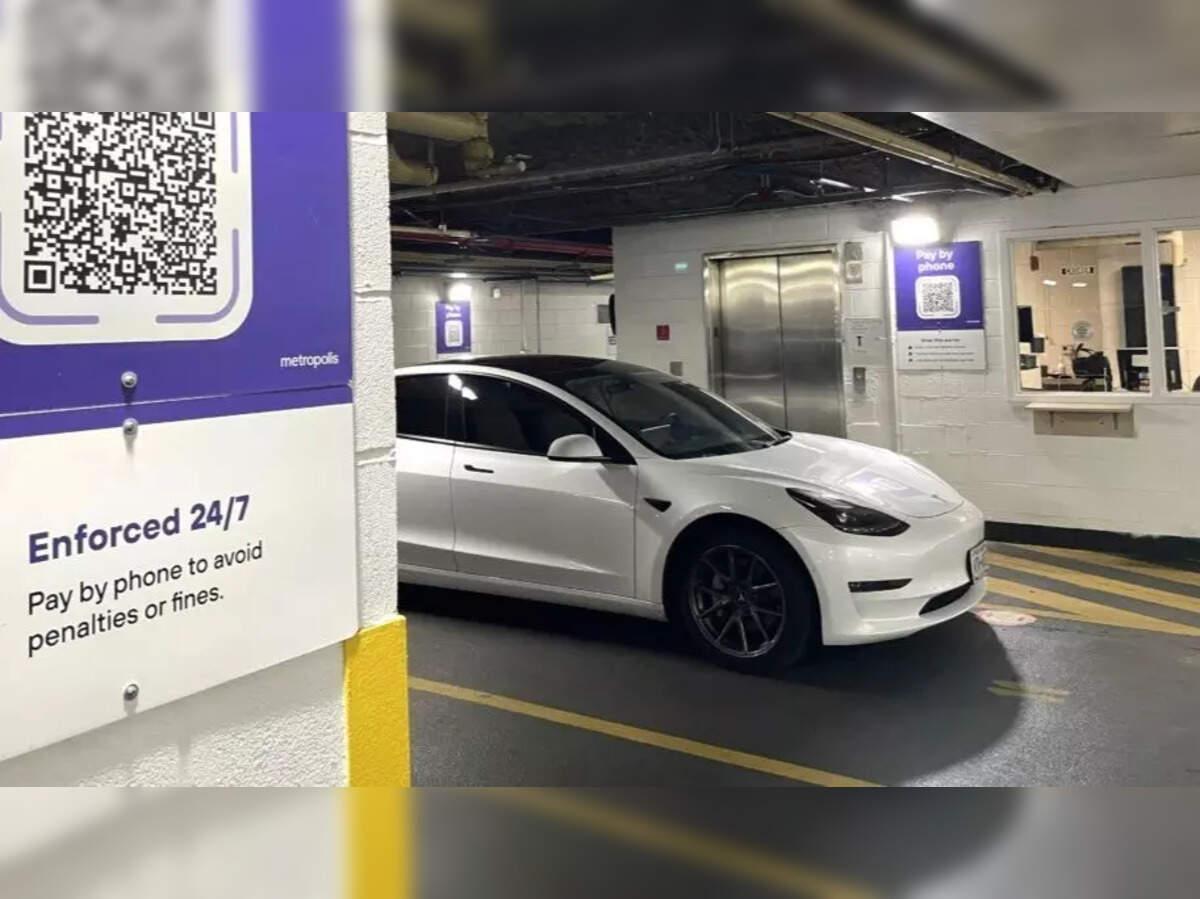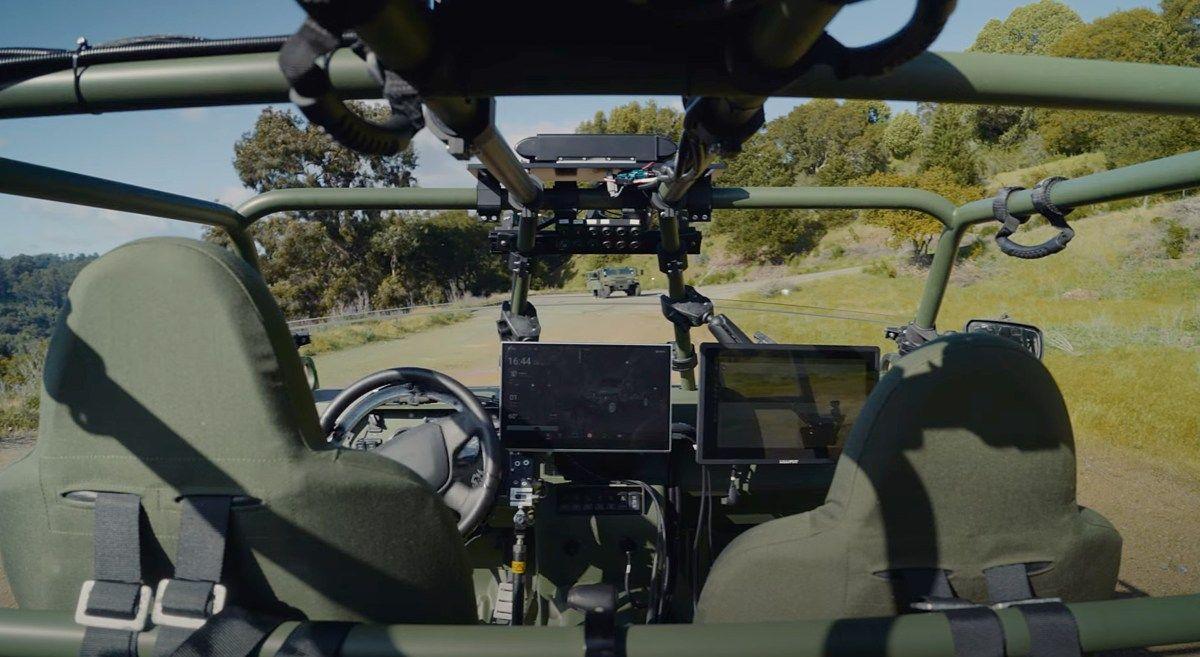AI Parking Giant Metropolis Raises $1.6 Billion to Pioneer 'Recognition Economy' Beyond Parking
2 Sources
2 Sources
[1]
AI startup Metropolis, biggest parking lot operator in U.S., raises $1.6 billion for major retail expansion
How AI-based 'recognition' economy works and why it may lead post-device world Metropolis, which uses AI and computer vision to identify vehicles and take parking lot payments without any physical transaction, has raised $1.6 billion in combined debt and equity in a new fundraising round at a $5 billion valuation. Already the largest parking lot operator in the U.S., handling more than 7% of licensed drivers (nearly 20 million people) across over 4,000 locations, the Santa Monica, California-based company is planning to use the capital for a major expansion across the retail sector, including gas stations, quick-service restaurant drive-thru windows, and hotels, as well as office buildings. "With this new capital, we're continuing to scale our platform and forge the foundation of the Recognition Economy, building a new paradigm for how AI is deployed in the real world," said Alex Israel, CEO and co-founder of Metropolis, in the deal announcement. The $1.6 billion capitalization includes a $1.1 billion senior secured loan and $500 million in Series D equity funding, led by new investor LionTree. Additional investors included Eldridge, 3L, SoftBank, DFJ, Tekne Capital, Vista and BDT & MSD Partners' affiliated credit funds. It's the largest round that the company has raised across its $2 billion in deals not specifically tied to an acquisition -- Metropolis took parking lot operator SP Plus private in 2024, the largest private M&A deal of 2024. The company doubled the debt it was able to raise since its last credit market deal in 2024 in a new financing led by J.P. Morgan, which the company attributed to its expanding gross margins. "Metropolis has proven what few companies have, demonstrating that AI can be commercialized at real-world scale," said Aryeh Bourkoff, CEO of LionTree, in the deal announcement. "With applications extending across every sector of daily life, from retail and hospitality to fueling and more, the scale potential is extraordinary, and we believe this is just the beginning of a generational opportunity."
[2]
SoftBank-backed Metropolis raises $1.6 billion to expand beyond AI-powered parking lots
The funding includes a $500 million Series D equity round led by LionTree that valued the company at $5 billion. SoftBank Vision Fund, Vista Equity Partners, BDT & MSD Partners and Eldridge also participated in the round. Metropolis Technologies, a US operator of parking lots that uses artificial intelligence and computer vision to recognize vehicles, has raised $1.6 billion in fresh capital to extend its technology into sectors such as retail, restaurants and gas stations, the company said on Thursday. The funding includes a $500 million Series D equity round led by LionTree that valued the company at $5 billion. SoftBank Vision Fund, Vista Equity Partners, BDT & MSD Partners and Eldridge also participated in the round. The Los Angeles-based company also secured a $1.1 billion syndicated term loan led by J.P. Morgan, backed by cash flows from its parking operations. Chief Executive Alex Israel said in an interview that the new capital will be used to hire technical talent, accelerate product development, and deploy its recognition and payment-automation technology in new verticals, including drive-through restaurants, gas stations and hotels. Israel said the goal is to create what he calls a "Recognition Economy," where a customer's identity or presence is enough to trigger a transaction, saving time. Founded in 2017, Metropolis scaled rapidly through acquiring established businesses and integrating its technology, including the $1.5 billion take-private of parking services provider SP+ in 2024. Earlier this year, it acquired SoftBank-backed biometrics and vision analytics firm Oosto for about $125 million. Now one of the largest parking lot operators in the U.S., Metropolis runs more than 4,200 locations across 40 countries. The company says it processes about $5 billion in annual transactions from 50 million customers and is profitable. Metropolis uses cameras and license plate readers to identify vehicles whose owners have opted into its system, allowing them to enter and exit parking lots without stopping to pay. The company plans to sell the same technology to the hospitality industry to automate payments and check-ins, and charge the businesses through software subscriptions. The company's ambitions come as other retail automation efforts have faced challenges. Amazon, for instance, has scaled back its "Just Walk Out" checkout-free system in its Fresh grocery stores, citing cost and complexity, though it continues to license the technology to third parties.
Share
Share
Copy Link
Metropolis, the largest parking lot operator in the U.S., secured $1.6 billion in funding at a $5 billion valuation to expand its AI-powered vehicle recognition technology into retail, restaurants, and hospitality sectors, aiming to create a frictionless 'Recognition Economy.'

Record-Breaking Funding Round
Metropolis Technologies, the AI-powered parking lot operator, has secured $1.6 billion in fresh capital at a $5 billion valuation, marking one of the largest funding rounds in the AI startup ecosystem
1
. The funding comprises a $500 million Series D equity round led by LionTree and a $1.1 billion syndicated term loan backed by J.P. Morgan2
.The investor lineup includes prominent names such as SoftBank Vision Fund, Vista Equity Partners, BDT & MSD Partners, Eldridge, 3L, DFJ, and Tekne Capital
1
. This represents a significant doubling of the debt the company was able to raise since its last credit market deal in 2024, which the company attributes to its expanding gross margins1
.Market Leadership and Scale
Founded in 2017 and based in Santa Monica, California, Metropolis has established itself as the largest parking lot operator in the United States
1
. The company currently handles more than 7% of licensed drivers, serving nearly 20 million people across over 4,200 locations in 40 countries1
2
.The company processes approximately $5 billion in annual transactions from 50 million customers and has achieved profitability
2
. Metropolis has scaled rapidly through strategic acquisitions, including the $1.5 billion take-private of parking services provider SP+ in 2024, which was the largest private M&A deal of that year1
2
.Technology and Vision for Recognition Economy
Metropolis utilizes artificial intelligence and computer vision technology to identify vehicles through cameras and license plate readers, enabling customers who have opted into the system to enter and exit parking lots without stopping to pay
2
. This frictionless payment system forms the foundation of what CEO and co-founder Alex Israel calls the "Recognition Economy"1
."With this new capital, we're continuing to scale our platform and forge the foundation of the Recognition Economy, building a new paradigm for how AI is deployed in the real world," Israel stated in the deal announcement
1
. The company's vision extends beyond parking to create a system where a customer's identity or presence alone is sufficient to trigger transactions2
.Related Stories
Expansion Strategy Across Multiple Sectors
The new capital will fuel Metropolis's ambitious expansion plans across various sectors including retail, gas stations, quick-service restaurant drive-thru windows, hotels, and office buildings
1
. The company plans to deploy its recognition and payment-automation technology in these new verticals while hiring technical talent and accelerating product development2
.For the hospitality industry, Metropolis intends to sell technology that automates payments and check-ins, charging businesses through software subscriptions
2
. The company has also strengthened its technological capabilities through acquisitions, including the purchase of SoftBank-backed biometrics and vision analytics firm Oosto for approximately $125 million earlier this year2
.References
Summarized by
Navi
Related Stories
Applied Intuition Secures $600 Million in Funding, Pushing Valuation to $15 Billion
17 Jun 2025•Business and Economy

Wayve Secures $1.5B From Nvidia, Uber, and Automakers to Scale Self-Driving AI Globally
25 Feb 2026•Startups

Apptronik Raises $520 Million to Scale Apollo Humanoid Robots for Industrial Deployment
11 Feb 2026•Startups

Recent Highlights
1
OpenAI secures $110 billion funding round from Amazon, Nvidia, and SoftBank at $730B valuation
Business and Economy

2
Samsung unveils Galaxy S26 lineup with Privacy Display tech and expanded AI capabilities
Technology

3
Anthropic faces Pentagon ultimatum over AI use in mass surveillance and autonomous weapons
Policy and Regulation





